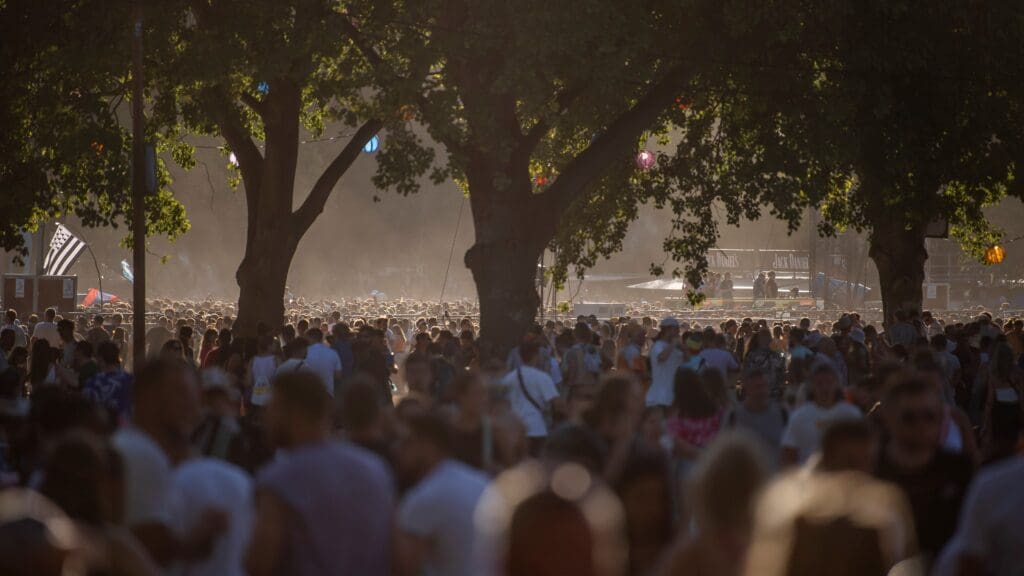According to some extensive studies, Central Eastern Europe, by and large, is somewhat unhappier than Western Europe. On a scale of zero to ten, the average rate of happiness between 2010-2019 in Germany was 7.38, in France 6.78, in Ireland 7.21, in Norway 7.94 and in the Netherlands 7.63. The highest scoring country in the world was Denmark with 8.18 points. By comparison, in Central Eastern Europe people are less happy: the average rate of happiness between 2010-2019 in Hungary was 6.16, while in Slovakia it was 6.85, in Romania 6.98, in Ukraine 5.14, in Bulgaria 5.04, and in Croatia 6.48.[1] Based on these data, Hungary was the 84th happiest country in the world in 2019.
Although little is known about the actual levels of happiness under state-socialism in Central Eastern Europe, some argue that the lower level of happiness observed today in the post-communist region is due to the legacy of communism. In fact, the phrase “Iron Curtain of Unhappiness” was coined in light of the persistence of low levels of happiness in the region despite the fall of communism. After the regime changes of 1989, the economic downturn associated with the transition did not help to improve happiness in Central Eastern Europe either. With inflation and unemployment rising, people felt insecure about and dissatisfied with their future. Even though by the late 1990s Hungary’s economic performance had recovered to its pre-transition levels, unhappiness persisted in the region – giving rise to the question: why?[2]
While state-socialist societies were relatively equal, the economic transition quickly separated Central European societies into winners and losers, which decreased the life satisfaction of the less fortunate
In a 2009 paper, Russian economy professors Sergei Guriev and Ekaterina Zhuravskaya cited five main reasons for the low post-transition life satisfaction levels. All of the reasons they identified spring from the rapid transformation of the economies of post-Communist countries that societies could not keep up with. First of all, people were faced with increasing inequality. While state-socialist societies were relatively equal, the economic transition quickly separated Central European societies into winners and losers, which decreased the life satisfaction of the less fortunate. The second factor the researchers pinpointed was the decrease in the public goods provided by the state – as segments of the economy were privatised, the paternal role of the state diminished, making many feel that they were being left behind. The third reason cited is connected to the increasing volatility of the individuals’ economic circumstances. While before the transition unemployment was an offence, after the transition, unemployment became a normal part of the economy – resulting in a shock to a population which was used to full employment. In addition, the value of human capital accumulated before the transition dropped significantly. Some of the skills people learnt during state socialism became useless in a capitalist society, which increased the sense of economic insecurity and uncertainty in the general population and reduced happiness levels. The final reason of unhappiness in the transition region, according to the authors of the paper, is the increased awareness of Western, better-off nations – comparatively, the situation in Central Europe seemed very dim to most people.[3] Compared to 2009, the year when the paper was written, the good news is that while some of the transition period’s unhappiness persists even today in Central Europe, slowly but surely the region is converging to the rest of the continent.
It is worth noting that according to Hungarian studies, there were some specific factors that had a positive influence on individual happiness in Hungary during the transition. Religiosity measured in terms of the regularity of churchgoing, for one, is positively associated with happiness. Interestingly, the positive correlation between happiness and religiousness holds only when religion is measured in terms regular church attendance, as opposed to religiousness being measured in terms of self-declared faith, as in that case religion seems to have no effect on happiness. So, it is rather the practise and the sense of belonging to a community than ideological affiliation which effect happiness. On the other hand, studies found that as transition progressed, religious people did not get happier at a faster rate than the rest of the population. Interestingly, the greater ideological freedom the transition brought about did not affect the margin of increase in the happiness of religious people.[4] By contrast, entrepreneurially-minded individuals did became happier because of the transition. As Hungary transitioned into a free-market system, their creative energies were sparked, helping them pursue their entrepreneurial dreams. This did not only contribute to their economic success, but also to a greater level of happiness.[5]
According to a study carried out last year, the happiest city in Hungary is Szombathely, followed by Nyíregyháza.[6]Budapest is also a relatively happy Hungarian city, with the Buda side of the capital being significantly happier than Pest. Buda’s higher level of happiness is most likely connected to its relative prosperity. Economic factors definitely have an impact on perceptions of happiness. In less affluent Northern Hungary, Nógrád County is one of the unhappiest parts of the country, and it is also the part of Hungary where unemployment is among the highest. Borsod-Abaúj-Zemplén (also in Northern Hungary) as well as Somogy (located in Southwest Hungary) Counties are also among the unhappy regions, while Győr-Moson-Sopron (West Hungary), Tolna (South) and Komárom-Esztergom (Northwest) Counties are among the happy parts of the country.[7]
[1] World Database of Happiness, Worlddatabaseofhappiness.eur.nl, https://worlddatabaseofhappiness.eur.nl/nations/, accessed 4 March 2022.
[2] Orsolya Lelkes, ‘Tasting freedom: Happiness, religion and economic transition,’ Journal of Economic Behavior & Organization, Vol. 59, 2002, p. 177.
[3] Sergei Guriev and Ekaterina Zhuravskaya, ‘(Un)Happiness in Transition,’ Journal of Economic Perspectives, Volume 23, 2009, p. 156.
[4] Lelkes, Tasting freedom, p. 175.
[5] Lelkes, Tasting freedom, p. 188.
[6] Márton Jász, ‘Happiest City in Hungary Revealed,’ Hungarytoday.hu, 2021, https://hungarytoday.hu/hungary-happiest-city-happiness-map-research/ , accessed 4 March 2022.
[7] Boldogságtérkép kutatás 2020-2021, ‘Magyarország Boldogságtérképe 2020-2021,’ Boldogsagprogram.hu, http://boldogsagprogram.hu/magyarorszag-boldogsagterkepe-2021/, accessed 6 March 2022.








